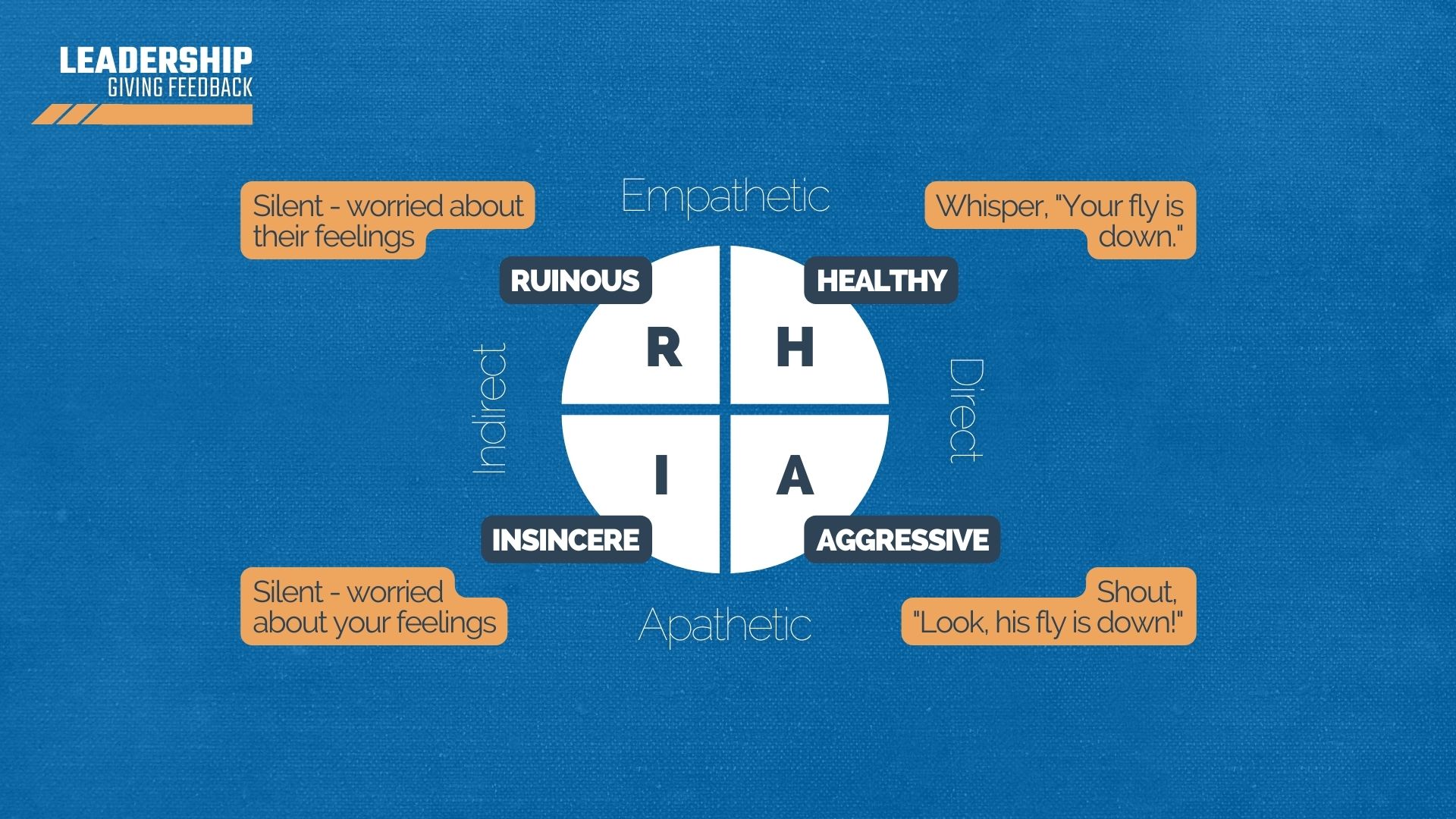- Kim Scott teaches us how a true authentic leader gives good feedback in order for the team to move forward and accomplish their mission.
- Healthy Leaders give direct feedback in a way that shows empathy and personal care.
- Aggressive Leaders give direct feedback, but only in a harsh, obnoxious or uncaring way.
- Insincere Leaders don’t want to give critical feedback because they’re more concerned with being liked or trying to gain an advantage through a lack of candor.
- Ruinous Leaders don’t want to hurt feelings so they put off the inevitable thinking that avoiding truthful conversations is better than being honest.
Are you struggling with giving effective feedback to your team? Do you struggle to find the right balance between candor and kindness? Kim Scott, author and management consultant, teaches us the art of giving feedback that moves the team forward.
Healthy Leaders give direct feedback in a way that shows empathy and personal care.
Kim Scott emphasizes the importance of being direct with feedback, but also adding a personal touch. A leader that shows empathy and care to their team is perceived as trustworthy and approachable. This creates a healthy work environment where team members feel comfortable sharing their thoughts and opinions.
Aggressive Leaders give direct feedback, but only in a harsh, obnoxious or uncaring way.
On the other hand, leaders who give feedback in a harsh, obnoxious or uncaring way risk damaging the trust and morale of the team. Feedback should be a tool for growth and development, not a weapon to attack team members. If your feedback consistently lacks empathy, you may be perceived as an aggressive leader who doesn’t care about the well-being of their team.
Insincere Leaders don’t want to give critical feedback because they’re more concerned with being liked or trying to gain an advantage through a lack of candor.
Kim Scott also warns against leaders who avoid giving critical feedback to maintain their popularity or gain an advantage. This lack of candor can be damaging to the team and hinder their growth and development. If you are more concerned with being liked than being honest, you may be perceived as an insincere leader who lacks the courage to have difficult conversations.
Ruinous Leaders don’t want to hurt feelings so they put off the inevitable thinking that avoiding truthful conversations is better than being honest.
Finally, leaders who avoid giving feedback to avoid hurting feelings risk doing more harm than good. Delaying critical feedback can create confusion, undermine trust, and stall the team’s progress. As a leader, it’s important to find the courage to have difficult conversations, even if it means having to navigate the fine line between kindness and candor.
The art of giving feedback is an essential part of effective leadership. By balancing candor with empathy and care, leaders can empower their team and achieve mission success. By avoiding aggressive, insincere, or ruinous behavior, leaders can establish trust and create a healthy work environment. So, the next time you need to give feedback to your team, remember Kim Scott’s teachings and give it in a way that moves the team forward.
- From the list of leaders above, what kind of leader was your father at home? What kind of leader was your mother? What kind of leader are you with your family?
- How have you seen Aggressive leaders create a toxic work environment?
- How does an Insincere leader create problems for the team or workplace? What are some examples of insincere feedback?
- Why is being ruinously empathetic dangerous as a leader? What tends to happen on a team when avoidance is more important than directness?
- What does healthy feedback look like? How does the Healthy Leader’s feedback help his team to accomplish their mission?
- Out of all the leaders listed above, which do you think is the worst and why?
- What kind of leaders have you had at your business. What kind of leader are you?


